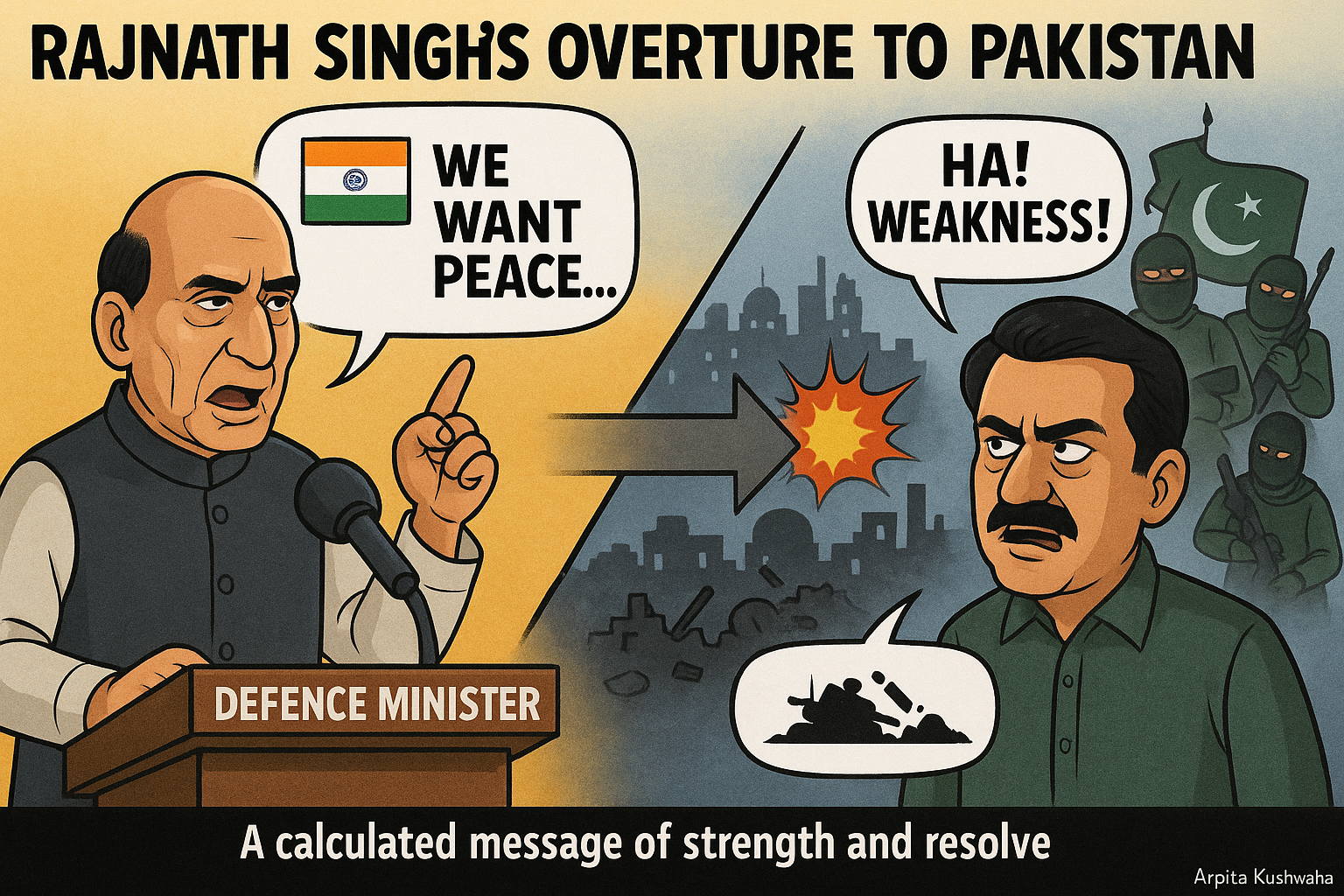New Delhi: Defense Minister Rajnath Singh’s recent statement in the Rajya Sabha, offering India’s assistance to Pakistan in combating terrorism on its own soil if it proves incapable, marks a significant and audacious shift in New Delhi’s diplomatic and strategic posturing. Coming amidst a special debate on ‘Operation Sindoor’ – India’s robust response to the tragic Pahalgam terror attack – Singh’s words are less an act of altruism and more a calculated message of India’s enhanced capabilities and unwavering resolve.
For decades, India has borne the brunt of cross-border terrorism, often emanating from Pakistani territory. The traditional diplomatic lexicon has revolved around urging Pakistan to act against terror groups. Singh’s direct offer of military assistance, however, shatters this conventional framework. It subtly redefines the terms of engagement, transforming India from a recipient of terror to a potential enforcer of regional stability, even within Pakistan’s borders. This bold declaration is underpinned by the success of ‘Operation Sindoor,’ which Singh reiterated was not a full stop but a “comma,” capable of being recommenced if Pakistan once again indulges in terror activities.
The Defense Minister’s detailed account of ‘Operation Sindoor’ highlights a clear political-military objective: to punish Pakistan for waging a proxy war through terrorism. The precision strikes that eliminated terrorists responsible for the Pahalgam incident, and the destruction of terror infrastructure, underscore India’s readiness to go to “any lengths” in self-defense. This approach, as Singh emphasized, is not expansionist but firmly rooted in the imperative to dismantle threats to India’s sovereignty and its citizens’ lives. The revelation that Pakistan’s Director General of Military Operations (DGMO) had to request a halt to hostilities, accepted by India on the condition of suspension rather than termination, further reinforces the narrative of India’s dominant position.

Beyond Pakistan, Singh’s address carried broader implications. His appeal to the international community to cease funding Pakistan, citing its alleged use of aid to finance terrorism, and his criticism of the UN for appointing Pakistan to a key counter-terrorism committee, are clear diplomatic offensives. These statements aim to isolate Pakistan further on the global stage, painting it as a state that not only harbors but actively supports terrorism, a stark contrast to India’s burgeoning image as a “Mother of Democracy.”

The internal political dimension of Singh’s speech also cannot be overlooked. His sharp retort to opposition queries regarding the retrieval of Pakistan-Occupied Kashmir (PoK), coupled with his assertion that a day would come when PoK residents would proudly identify as Indians, serves to unify the domestic narrative around national security. It simultaneously deflects criticism and reinforces the government’s long-term vision for India’s territorial integrity.
In essence, Rajnath Singh’s statement is a multi-layered message. It signals to Pakistan that India’s patience has worn thin, and its strategic calculus has evolved. It reassures the domestic audience of India’s strength and decisiveness against terror. And it implicitly challenges the international community to acknowledge Pakistan’s role in global terrorism more forcefully. While the immediate practicalities of India offering military assistance to Pakistan against terrorism are complex and fraught with geopolitical implications, the very articulation of such a possibility underscores a resolute New Delhi, prepared to rewrite the rules of engagement in its pursuit of peace and security.





